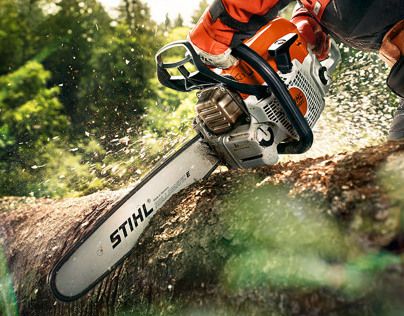While powerful, heavy-duty chainsaws are essential for professional logging, they are often overkill and impractical for many homeowners, gardeners, and DIY enthusiasts. For tasks like pruning, limbing small branches, clearing brush, or even light firewood preparation, the key attributes are not raw power but rather ease of handling, reduced fatigue, and precise control. This is where lightweight chainsaws shine, offering a balance of sufficient power and exceptional maneuverability that makes them ideal for less strenuous, more intricate cutting jobs.
Why Choose a Lightweight Chainsaw?
The benefits of opting for a lighter chainsaw extend beyond just reduced physical strain:
- Reduced Fatigue: Operating a heavy chainsaw for extended periods can quickly lead to muscle fatigue, increasing the risk of accidents. Lightweight models significantly lessen this burden, allowing for longer work sessions with greater comfort.
- Enhanced Control and Precision: A lighter saw is inherently easier to guide, making it simpler to achieve accurate cuts, especially in tight spaces or when performing delicate pruning. This improved control also contributes to safer operation.
- Easier Maneuverability: Whether you’re working overhead, reaching into dense foliage, or navigating around obstacles, a lightweight chainsaw is far more agile and less cumbersome to move around.
- Beginner-Friendly: For those new to chainsaw operation, a lighter model is less intimidating and easier to learn on, building confidence before potentially moving to more powerful tools.
- Lower Risk of Injury: While all chainsaws demand respect, the reduced weight and improved control of lighter models can indirectly contribute to a lower risk of accidents related to fatigue or loss of balance.
Types of Lightweight Chainsaws
Lightweight chainsaw typically fall into two main categories, each with its own set of advantages for maneuverability:
1. Corded Electric Chainsaws
- Weight: Often the lightest chainsaw option available, making them incredibly easy to handle.
- Maneuverability: Excellent for tasks close to a power source where cord management isn’t an issue. Their low weight allows for precise cuts and easy maneuvering around garden beds or workshops.
- Pros: Instant start, quiet operation, zero emissions, minimal maintenance, and very affordable.
- Cons: Limited by the length of the extension cord, which can also be a tripping hazard. Power is generally lower than gas or battery models.
- Best For: Light pruning, small limb removal, and tasks in urban or suburban settings where noise and emissions are concerns.
2. Battery-Powered (Cordless) Chainsaws
- Weight: Generally heavier than corded electric models due to the battery, but still significantly lighter than most gas saws.
- Maneuverability: Unrestricted by a cord, offering superb freedom of movement. This makes them ideal for navigating larger properties, remote areas of the garden, or when moving between multiple cutting spots.
- Pros: Highly portable, quiet, zero emissions, instant start, and low maintenance. Power and run-time are continually improving.
- Cons: Battery life can be a limiting factor for extended heavy-duty tasks, and spare batteries can be expensive.
- Best For: A versatile choice for most homeowners and DIYers, suitable for medium-duty tasks, quick clean-ups, and situations where portability is key.
Key Features to Prioritize for Maneuverability
When selecting a lightweight chainsaw, look for features that further enhance its ease of use:
- Compact Design: Shorter bar lengths (e.g., 10-16 inches) and a slim profile contribute to overall manageability.
- Ergonomic Handles: Well-designed, comfortable handles with good grip reduce hand fatigue and provide better control.
- Good Balance: A saw that feels balanced in your hands, even when holding it at different angles, will be easier to control and less tiring to operate.
- Tool-less Chain Tensioning: Simplifies adjustments, meaning less downtime and more focus on the cutting task.
- Low Vibration: While all chainsaws vibrate, models with effective anti-vibration systems further enhance comfort during use.
Conclusion
For gardeners and DIYers, the most powerful chainsaw isn’t always the best. Often, a lightweight chainsaw offering easy maneuverability is a far more practical and safer choice. By opting for a corded electric or, increasingly, a battery-powered model, users can enjoy reduced fatigue, enhanced control, and the convenience needed for common property maintenance tasks. Prioritizing features that contribute to comfortable handling and precision will ensure your chainsaw is a joy to use, rather than a chore.








